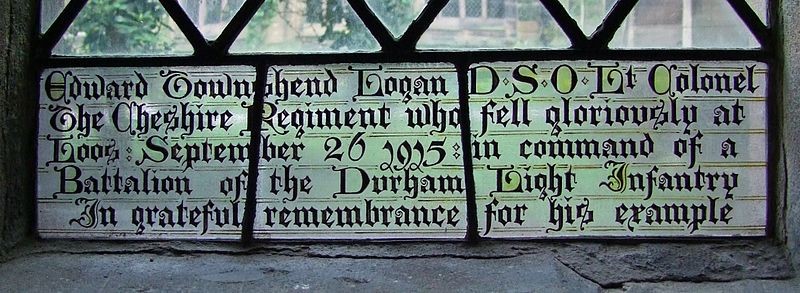Edward Townshend Logan
Edward Logan was born in Valparaiso, Chile where his father worked as a copper merchant. He arrived at Westminster at the age of 15, and joined Grant’s House.
He achieved fame within the school for his disastrous performance in the Junior Sculls in July 1882. The report in The Elizabethan reads “the most remarkable feature of this race was Logan’s course, from a Surrey station into the Middlesex bank; Hawkins, who remained for some time in obscurity, suddenly forged ahead at the corner, and won, while Crews, rowing very pluckily, passed Logan, when stranded, thus securing the second place.”
In 1888, six years after leaving school, he joined the Cheshire Militia, rising steadily through the ranks over the following decades. In the Boer war, he served as a Captain with the Mounted Infantry and was mentioned twice in dispatches. On the 22nd January 1896, he married Hilda Emma Frances Duckworth, a widow, in Rossett, Denbighshire.
He was awarded the Queen’s Medal (three clasps), the King’s Medal (two clasps) and, on 24th March 1901, he received a Distinguished Service Order Medal for the “gallant leading of the advanced guard.” At the end of the Boer War, Logan left the army to join the South African Constabulary, where he rose to Commandant of Middleburg, Transvall.
He returned to England in 1907, and lived with his wife at Christleton Bank, Cheshire. He re-joined the army, where he became commanding officer of the 3rd batt. Cheshires in Birkenhead. At the outbreak of war, he was soon put in command of the 5th Durham Light Infantry and sent to France — to the Battle of Loos — in September 1915.
Lieutenant Colonel Logan was killed in action on the 25th September, along with his younger brother. According to the Cheshire Observer, attendance at the service in his honour was “striking testimony to the high esteem and warm regard in which he was held”.
Throughout the rest of the war, his widow organised support for the Cheshire Regiment from the people of Christleton.
